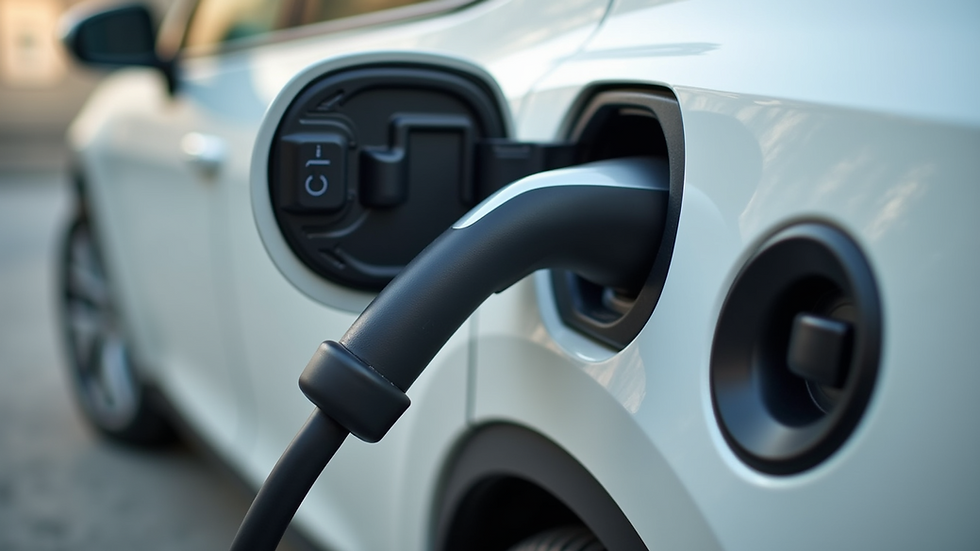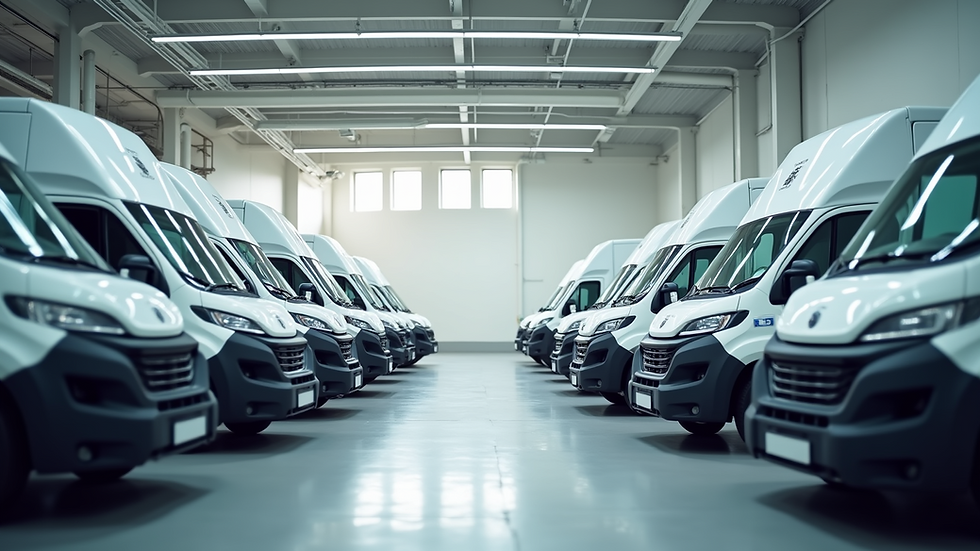Sustainable Solutions for a Greener Fleet
- kevindempse0
- Sep 15
- 3 min read
Managing a fleet today means more than just keeping vehicles on the road. It involves a commitment to reducing environmental impact while maintaining efficiency and cost-effectiveness. As we look to the future, adopting eco-friendly business solutions is essential for any organisation aiming to reduce emissions and operational costs. In this post, we explore practical ways to create a greener fleet that supports sustainability goals and delivers measurable benefits.
Why Eco-Friendly Business Solutions Matter for Fleets
The transport sector is a significant contributor to carbon emissions. For businesses operating fleets, this presents both a challenge and an opportunity. By embracing eco-friendly business solutions, we can reduce fuel consumption, lower emissions, and improve overall fleet performance. This approach not only benefits the environment but also enhances brand reputation and reduces long-term costs.
For example, switching to electric or hybrid vehicles can drastically cut emissions. Similarly, optimising routes and improving driver behaviour can reduce fuel use. These changes align with the goal to achieve net-zero emissions and can reduce operational costs by up to 30%.

Practical Steps to Implement Eco-Friendly Business Solutions
Transitioning to a greener fleet requires a clear plan and commitment. Here are some actionable steps we can take:
Vehicle Selection
Choose vehicles with lower emissions. Electric vehicles (EVs) and hybrids are excellent options. Consider the vehicle’s range, charging infrastructure, and suitability for your specific operations.
Route Optimisation
Use GPS and fleet management software to plan the most efficient routes. This reduces mileage and fuel consumption, saving money and cutting emissions.
Driver Training
Educate drivers on eco-friendly driving techniques such as smooth acceleration, maintaining steady speeds, and reducing idling time. These habits improve fuel efficiency.
Regular Maintenance
Keep vehicles in top condition. Well-maintained engines and properly inflated tyres improve fuel economy and reduce emissions.
Telematics and Data Analysis
Monitor vehicle performance and driver behaviour using telematics. Data insights help identify areas for improvement and track progress towards sustainability goals.
By implementing these steps, we create a foundation for a greener, more efficient fleet.
The Role of Technology in Greening Fleets
Technology plays a crucial role in transforming fleet operations. Advanced tools enable us to make informed decisions and streamline processes. Here are some key technologies to consider:
Electric Vehicle Charging Solutions
Installing smart charging stations allows fleets to charge vehicles during off-peak hours, reducing energy costs and grid strain.
Fleet Management Software
These platforms provide real-time tracking, route planning, and fuel consumption reports. They help optimise operations and reduce waste.
Telematics Devices
These devices collect data on speed, braking, and idling. They support driver coaching and improve safety and efficiency.
Alternative Fuels
Beyond electricity, options like biofuels and hydrogen fuel cells offer promising eco-friendly alternatives for certain fleet types.
Investing in technology not only supports sustainability but also enhances operational control and cost savings.

Overcoming Challenges in Fleet Sustainability
Transitioning to a greener fleet is not without challenges. Common obstacles include upfront costs, infrastructure limitations, and resistance to change. However, these can be managed with careful planning:
Cost Management
While electric vehicles and new technologies may require higher initial investment, total cost of ownership often decreases over time due to lower fuel and maintenance costs. Leasing options and government incentives can also ease financial burdens.
Infrastructure Development
Charging infrastructure is critical for electric fleets. Partnering with local authorities and energy providers can help expand charging networks.
Change Management
Engaging staff and drivers early in the process fosters buy-in. Training and clear communication about benefits encourage adoption of new practices.
By addressing these challenges proactively, we can ensure a smooth transition to sustainable fleet operations.
Measuring Success and Continuous Improvement
To achieve lasting impact, it is essential to track progress and refine strategies. Key performance indicators (KPIs) to monitor include:
Fuel consumption per mile
Emissions levels
Vehicle utilisation rates
Maintenance costs
Driver behaviour metrics
Regularly reviewing these KPIs helps identify successes and areas needing attention. It also supports transparent reporting to stakeholders and compliance with environmental regulations.
We can also explore partnerships with organisations specialising in Sustainable Solutions to access expert guidance and innovative tools. This collaboration can accelerate progress and ensure best practices are followed.

Moving Forward with Confidence
Creating a greener fleet is a journey that requires commitment, knowledge, and the right tools. By adopting eco-friendly business solutions, we not only reduce our environmental footprint but also improve efficiency and reduce costs. The benefits extend beyond the bottom line, contributing to a healthier planet and a sustainable future.
Let us embrace this opportunity with a clear plan and steady progress. Together, we can lead the way in sustainable transport management and achieve meaningful results.





Comments